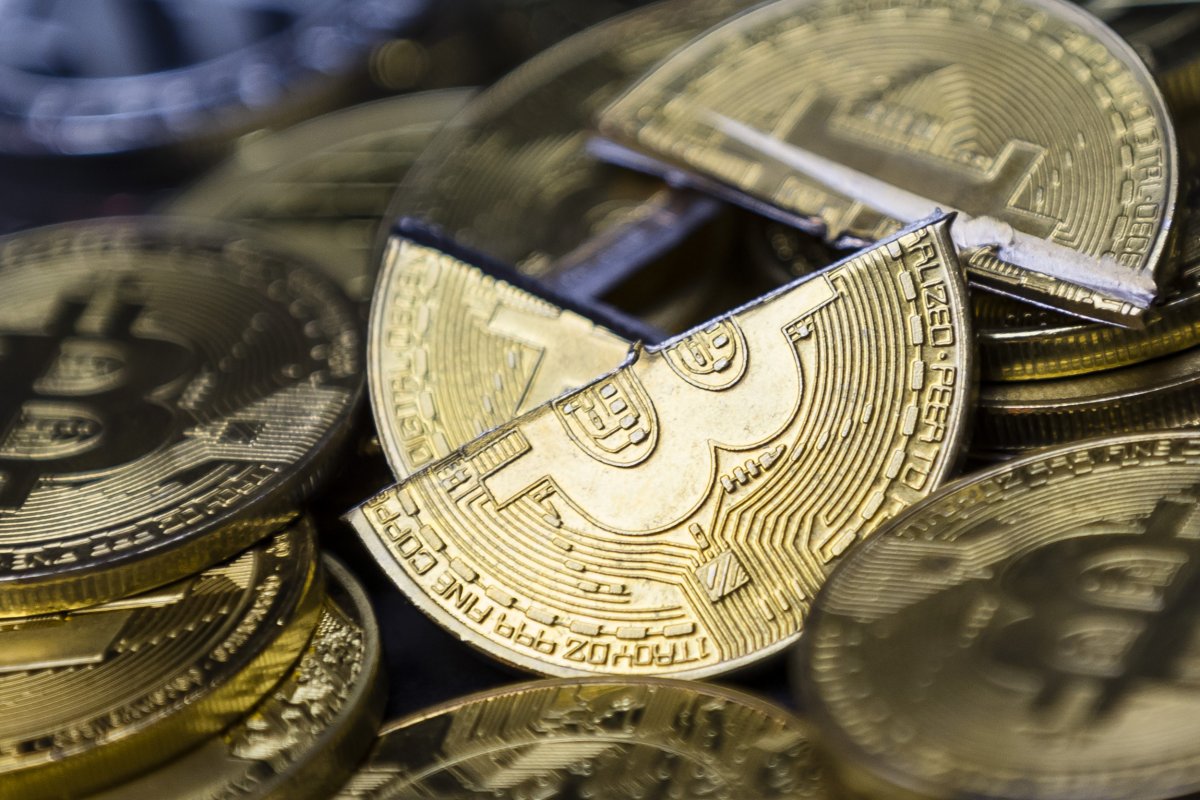The price of Bitcoin dipped below $4,000 in the last 24 hours, indicating that cryptocurrencies are not immune to the influence — and downturns — of traditional financial markets.
As fears spiked about the potential economic damage resulting from the outbreak of the novel coronavirus, some of the most popular forms of digital money sharply plunged. The price of Bitcoin — the biggest coin by market capitalization — tumbled by more than 40 percent from the previous day, CNBCreported.
Other forms of cryptocurrency felt the impact, with metrics from price tracking tool CoinMarketCap showing Ethereum, Ripple (XRP), and Litecoin also suffering dramatic downturns.
Bitcoin remains the most popular form of digital currency that is currently traded on the web. Unlike gold, which is physically mined, bitcoins are mined using computing power.
The majority are based on a distributed ledger technology known as a blockchain, which records transactions.
Despite cryptocurrencies often working against the grain of the traditional financial system, in part because they operate without the need for banks, some appear just as vulnerable to stock market shifts. Is Bitcoin considered a safe haven? Why are prices shifting so rapidly? And what is likely to happen next?
"Previously seen as a possible safe haven in difficult times, investors now seem to be selling out of Bitcoin to take back liquidity in case the coronavirus spreads even further," said Simon Peters, analyst and cryptocurrency expert at investment platform eToro.
He added, "In a time of uncertainty, many investors might feel it is better to own cash or gold rather than more speculative crypto assets like Bitcoin, while others might be looking to free up cash to invest in stocks if and when the situation starts to improve."
Broadly, financial markets tanked in response to the COVID-19 outbreak and the political handling of its spread. More than 128,000 people around the world are now infected and the illness had caused over 4,700 deaths. It has fueled massive disruption to the operations of companies and events.
As Newsweek reported yesterday, investors did not appear impressed by moves by president Donald Trump to limit travel between the U.S. and Europe during an Oval Office address.
But one person who did not seem too concerned about the sudden crypto drops was National Security Agency (NSA) whistleblower Edward Snowden, who tweeted today after the disruption, "This is the first time in a while I've felt like buying Bitcoin. That drop was too much panic and too little reason."
This is the first time in a while I've felt like buying bitcoin. That drop was too much panic and too little reason.
— Edward Snowden (@Snowden) March 13, 2020
Daniel Wolfford, who trades Bitcoin and is a former head of cybersecurity of Blockchains LLC, told Newsweek the wider markets and crypto-exchange platforms are easily manipulated by "whales" — people who hold large amounts of cryptocurrency and can mess with supply and demand.
He explained how whales can be "highly emotional and speculative," but also placed some blame for the ongoing volatility on the websites used to trade in cryptocurrencies.
"They are quick to allow anything that generates fees for them such as buy and sell, but very slow about withdrawals," Wolfford said. "Some exchanges allow people to trade with leverage and options which causes huge chain reactions. They trade 24/7 and some people get seriously addicted. Exchanges are the source of fake volume as people can trade back and forth with the exchange rather than each other."
Wolfford rejected the assertion that Bitcoin is no longer a safe haven, and while he acknowledged some users may choose to cut their losses, noted that heavy price drops are generally considered a positive rather than negative. "We call that having weak hands," he said. "When you say $1,000 or worse, I see $1,000 or better, as in cheaper, like it went on sale. I buy when people cry."
Investors are now fixated on charts recording price values in real-time. But with so many factors in play, it's very difficult for any cryptocurrency analyst to predict what happens next.
"Bitcoin is still novel and it is great as a means of transferring value quickly person-to-person but bad at holding value," said Charles Hayter, CEO of tracking platform CryptoCompare.
"The theory is that this will change with time, but quite clearly the cryptocurrency has nascent fragmented markets at present and isn't fulfilling the digital gold story.
"That said, traditional markets are being supported and Bitcoin is a completely free market."
"Can Bitcoin be a safe haven? Potentially, when it is more understood" Hayter told Newsweek. "And if we continue to see nation states erode the value of their currencies and that causes a mindset shift in the general public. But certainly not now." The value of a single bitcoin — a figure that is constantly in a state of flux — is approximately $5,500 at time of writing, according to the CoinDesk price index.

Uncommon Knowledge
Newsweek is committed to challenging conventional wisdom and finding connections in the search for common ground.
Newsweek is committed to challenging conventional wisdom and finding connections in the search for common ground.
About the writer
Jason Murdock is a staff reporter for Newsweek.
Based in London, Murdock previously covered cybersecurity for the International Business Times UK ... Read more
To read how Newsweek uses AI as a newsroom tool, Click here.








